Judge Lets North Dakota Voter ID Law That Discriminates Against Native Americans Stand
A Federal Judge is letting a North Dakota Voter ID law that clearly discriminates against Native Americans stand.
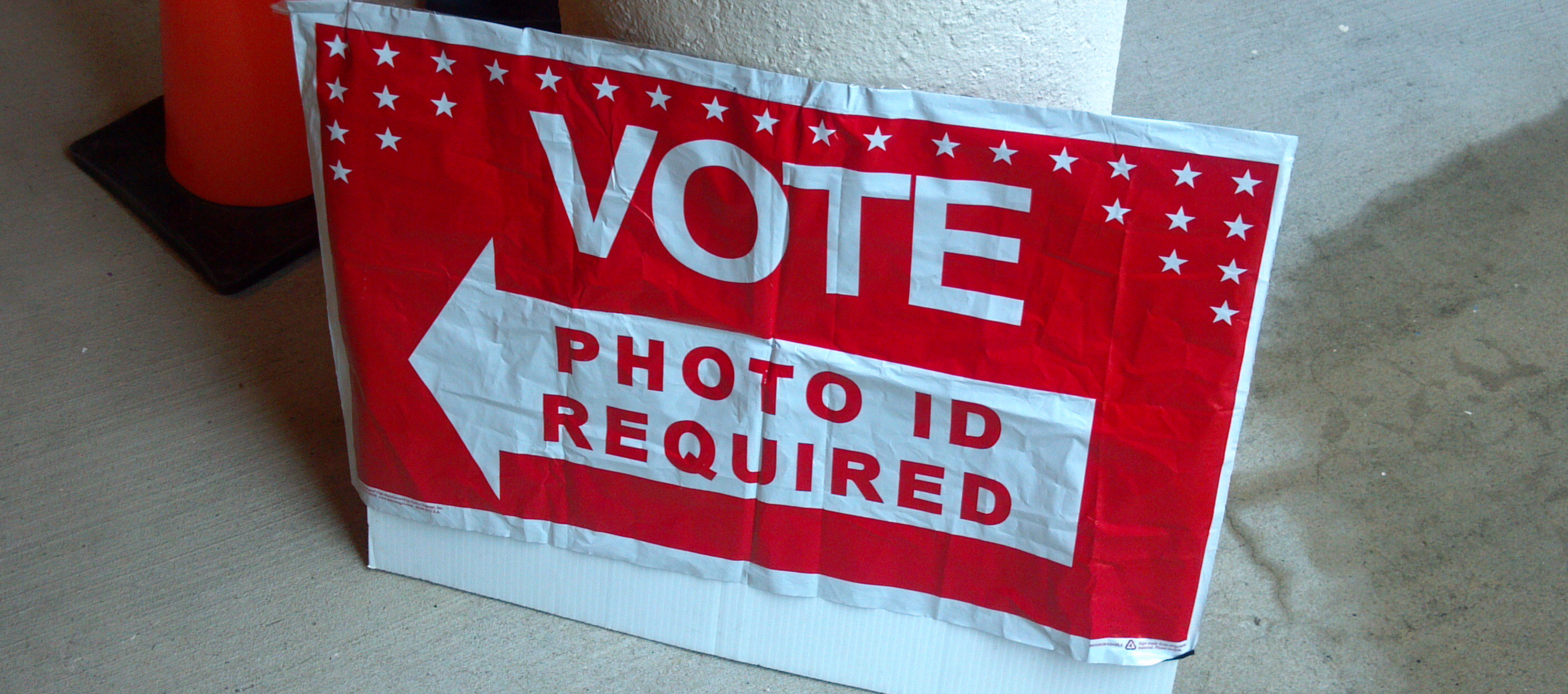
A Federal Judge in North Dakota rejected a challenge by Native Americans in the state who contend that the state’s strict Voter ID law is disenfranchising thousands of Native American voters:
A federal judge denied a last-minute emergency request to prevent North Dakota’s new street address requirement for voting from applying to Tuesday’s midterm election.
The requirement presents difficulties for some Native Americans in the state who have traditionally used post office boxes, loose locators or even vouching from poll workers to vote.
Critics have said the street address requirement is an attempt at disenfranchisement that was enacted by the state’s Republican-controlled legislature in the wake of Democrat Heidi Heitkamp’s sub-3,000-vote election to the U.S. Senate in 2012.
It’s been estimated as many as 5,000 of the state’s tribal citizens, who overwhelmingly vote Democrat, have identification with a post office box address. Under the law, they’ll have to get state-issued or tribal identification with a valid street address.
Daniel L. Hovland, chief judge for the U.S. District Court in North Dakota, wrote in his ruling Thursday that the allegations of voter suppression gave him “great cause for concern” and that “a detailed response from the Secretary of State” was warranted.
“The litany of problems identified in this new lawsuit were clearly predictable and certain to occur as the court noted in its previous orders,” the judge stated.
However, Hovland wrote, an emergency temporary restraining order was “unwarranted given the importance of avoiding further confusion and chaos on the eve of an election.”
Corey Goldstone, a spokesman for the Campaign Legal Center, a nonprofit representing some of the plaintiffs, responded via email: “While we are disappointed with the order, Judge Hovland was correct that the evidence indicates that disenfranchisement will be ‘certain.’ We are considering our options.”
Mark Joseph Stern at Slate has more, along with analysis and commentary:
A federal judge rejected on Thursday a lawsuit brought by Native American voters disenfranchised by North Dakota’s draconian voter ID law. The decision likely means that hundreds, perhaps thousands of citizens will not be able to cast a ballot in November because they live on reservations.
Following Democratic Sen. Heidi Heitkamp’s narrow victory in 2012, North Dakota’s Republican lawmakers passed a new law requiring voters to present an ID that lists their current residential street address. The measure plainly targeted Native Americans, many of whom live on rural reservations with no street names or residential addresses. Previously, residents could vote with a valid mailing address, allowing rural tribal voters to list their P.O. Box. Now they must provide an ID with their exact residency—something that many Native Americans don’t have and can’t get.
For that reason, U.S. District Judge Daniel L. Hovland halted this requirement in April, citing its “discriminatory and burdensome impact on Native Americans.” But the 8th U.S. Circuit Court of Appeals reversed that decision in September, and the U.S. Supreme Court declined to reinstate Hovland’s ruling. (Justices Ruth Bader Ginsburg and Elena Kagan dissented.) On Tuesday, a group of Native Americans returned to court with a new lawsuit demonstrating that the residential address rule did not merely burden their right to vote; it denied them access to the ballot altogether. Their suit explained how tribal voters simply could not obtain a residential address: The state’s mapping systems conflict with each other, as do the state’s different residency databases, meaning many voters cannot secure an official address in time for the election.
As Stern goes on to note, Judge Hovland’s decision to decline to put a halt to the requirement is based on a 2006 Supreme Court ruling called Purcell v. Gonzalez. As I’ve explained in the past in connection with cases dealing with election law issues being decided close in time to an an election, in Purcell the courts were dealing with a Voter ID law out of Arizona that was being challenged on the allegation that it unfairly discriminated against minority and poor voters. The District Court and the Ninth Circuit Court of Appeals both ruled in favor of the Plaintiffs and imposed an injunction against enforcement of the law notwithstanding the fact that both injunctions were issued within less than two months prior to the 2006 midterm elections. By that time, of course, state and local authorities had moved forward with election planning, including the printing of absentee and military ballots, that presumed the new law would be in effect for that election. The relevant state authority appealed the granting of the injunction that the courts below had erred in not giving due consideration to the fact that state authorities had moved forward in reliance on the idea that the law would be in effect for the 2006 election. In a relatively short opinion, a unanimous Court ruled that the Court of Appeals had erred in not giving greater consideration to allowing the law to go into effect just weeks before the election:
Faced with an application to enjoin operation of voter identification procedures just weeks before an election, the Court of Appeals was required to weigh, in addition to the harms attendant upon issuance or nonissuance of an injunction, considerations specific to election cases and its own institutional procedures. Court orders affecting elections, especially conflicting orders, can themselves result in voter confusion and consequent incentive to remain away from the polls. As an election draws closer, that risk will increase. So the Court of Appeals may have deemed this consideration to be grounds for prompt action. Furthermore, it might have given some weight to the possibility that the nonprevailing parties would want to seek en banc review. In the Ninth Circuit that procedure, involving voting by all active judges and an en banc hearing by a court of 15, can consume further valuable time. These considerations, however, cannot be controlling here. It was still necessary, as a procedural matter, for the Court of Appeals to give deference to the discretion of the District Court. We find no indication that it did so, and we conclude this was error.
Although at the time the Court of Appeals issued its order the District Court had not yet made factual findings to which the Court of Appeals owed deference, see Fed. Rule Civ. Proc. 52(a), by failing to provide any factual findings or indeed any reasoning of its own the Court of Appeals left this Court in the position of evaluating the Court of Appeals’ bare order in light of the District Court’s ultimate findings. There has been no explanation given by the Court of Appeals showing the ruling and findings of the District Court to be incorrect. In view of the impending election, the necessity for clear guidance to the State of Arizona, and our conclusion regarding the Court of Appeals’ issuance of the order we vacate the order of the Court of Appeals.
In a concurring opinion, Justice John Paul Stevens noted that leaving the stay of the lower court’s ruling against the law in effect in advance of the impending election would be the best way for future courts to deal with the legal issues involved in the case.
Allowing the election to proceed without enjoining the statutory provisions at issue will provide the courts with a better record on which to judge their constitutionality. At least two important factual issues remain largely unresolved: the scope of the disenfranchisement that the novel identification requirements will produce, and the prevalence and character of the fraudulent practices that allegedly justify those requirements. Given the importance of the constitutional issues, the Court wisely takes action that will enhance the likelihood that they will be resolved correctly on the basis of historical facts rather than speculation.
As a general principle, the Purcell principle makes sense. The closer we get to an election, the less ideal it becomes for courts upset the status quo that exists under the law being challenged given the fact that state authorities, and campaigns, have relied upon the fact that the election would be conducted under a certain set of rules and that changing the rules at the last minute would create chaos for election officials and potentially unfairness for voters and candidates alike.
Stern pushes back against Judge Hovaland’s reliance on Purcell,though:
Hovland refused to block the law’s application to these unlucky voters and their tribe, Spirit Lake. Hovland conceded that their claims gave him “great cause for concern.” But he cited the Supreme Court’s Purcell principle, which warns lower courts not to alter voting laws shortly before an election due to the risk of voter confusion. In a jab at the 8th Circuit, Hovland noted that the problems highlighted in this lawsuit “were clearly predictable and certain to occur.” Yet because early voting has already begun—and the election is five days away—Hovland concluded that a new injunction “will create as much confusion as it will alleviate.”
This assertion is difficult to believe. In his earlier ruling, Hovland found that the new law would prevent about 5,000 Native American voters from casting a ballot. Although tribal governments have scrambled to hand out new IDs for free, voters like Terry Yellow Fat have no recourse. The state wrongly insists that Yellow Fat lives in a liquor store, and must use the store’s address to vote—but if he does so, he will break the law, because it is not actually his “fixed permanent dwelling.” It’s hard to see how a narrow order protecting people like Yellow Fat would’ve created any confusion.
The major failure here, of course, lies in the state legislature and Governor, who were aware months ago if not earlier about the problems that the new law would pose for Native American voters. That problem was brought closer to home when Hovland issued his initial injunction more than six months ago. Rather than amending the law in a way that would protect the voting rights of the state’s Native Americans, though, the state chose to appeal the case, which resulted in a lengthy process that brought us to the point where it was necessary for Native Americans to file a separate lawsuit to address the issue prior to Election Day. It’s that lawsuit in which the denial of an injunction occurred notwithstanding the fact that the law as it exists will make it impossible for many Native Americans to vote due to the fact that, because they live on a reservation, they do not permanent and fixed street addresses.
The ruling seems to be even more egregious given the fact that the Voter ID law in question seems to have been clearly designed to disenfranchise Native Americans, who just happen to vote predominantly for Democrats while the Governor is a Republican and the state legislature is controlled by Republicans. Indeed, Hovland’s own ruling in April essentially finds that the law had a ”discriminatory and burdensome impact on Native Americans.” Given that, it seems clear that something should have been done long before now. Instead, the state appears to have dragged out its appeals in this matter to the point we’re at today. As a matter of law, unfortunately, it appears that Hovland was correct in his decision not to disturb the status quo with just five days left before the election. The Purcell principle is clear and, while Stern’s words are well-taken it seems clear that any order that Hovland issued here to the contrary would have been quickly overturned on appeal. At this point, the only option left is for the tribe to issue identification that complies with the law, and apparently there is a rush on as we speak to get such identification cards issued. It’s likely, though, that there will be hundreds if not thousands of Native Americans who will not be able to get such identification and thus will not be able to vote. In other words,0 once again Native Americans are getting screwed over.
Spirit Lake Tribe Et Al v. … by on Scribd

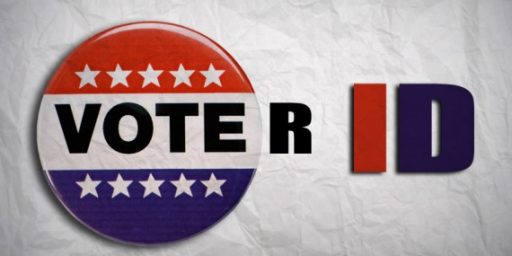
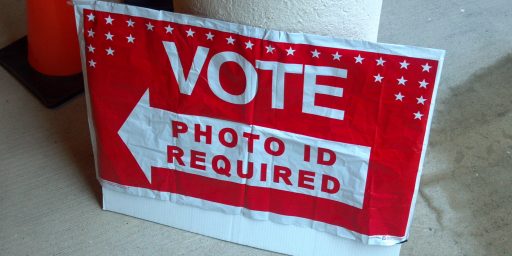
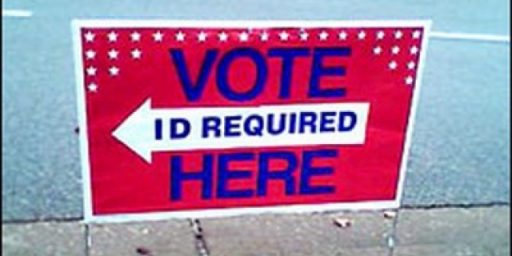
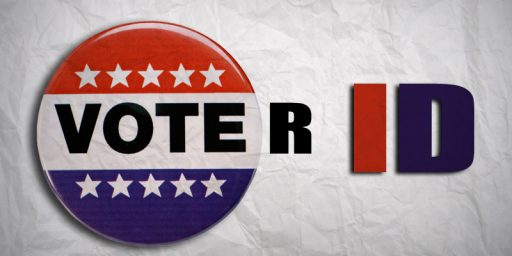
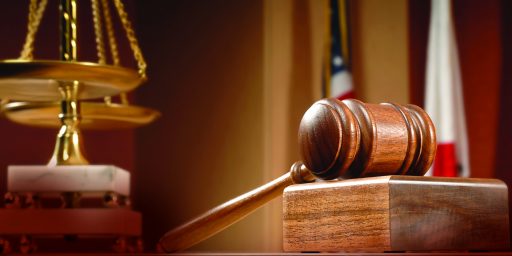
Cue up U2, Where the Streets Have No Name. Ever since my time living on the Reservation (in South Dakota, not North Dakota), this song has always taken me back. It is hard to believe that the appellate court re-instated such a blatantly discriminatory law.
I would add this to the long list of things that make me question the legitimacy of our government — and it is why I will never vote for a Republican again.
All Republicans have are racism, misogyny and vote suppression.
Native Americans – like Coastal Elites and Jews (except when they believe in Jesus) – are quite obviously not Real Americans, so there is really nothing to see here.
“An on time but undemocratic sham election is more important than a slightly delayed real election.”
As long as the GOP does not pay a price for these shenanigans they will never stop. What should happen is that if it is found that yes, several thousand American citizens were in fact disenfranchised because of this onerous requirement then the election should be held again.
And the Republicans should have to pay for it.
Do you think they viewed it as a failure? Or did they choose
Fully aware that Purcell would give them a victory if they could drag it out long enough. Neat tool for Republicans, that Purcell.
It is clear that voting is not a right in this country otherwise mere inconvenience would not be accepted as an excuse to do nothing. Unless there is civil and criminal penalties on individuals (including government officials) who interfere with the “right” to vote, then this will go on.
What really has to occur is a Constitutional Amendment enshrining the right to vote.
It really is unfortunate that we normalized the idea that making it harder for citizens to vote is in any way acceptable. They are our voting rights and public servants should be expected to protect and value them.
“Get the hell out of Dodge!”
The ACLU loses its bid to keep open the sole polling place in Dodge City, which is majority Latino. The new site is out of town.
The current situation under these decisions is that the state government can monkey around as late as they want, and then say that it’s ‘too late to make changes!’.
@Barry: Convenient that. Ain’t it?
I’ve been waiting for two days for James Pearce to show up to explain that this is no big deal; it simply represents a gap between the willpower to overcome obstacles and the fecklessness of SJW types.
Or at least to admit that voter suppression is actually, like, a thing and that it happens where Republicans congregate.